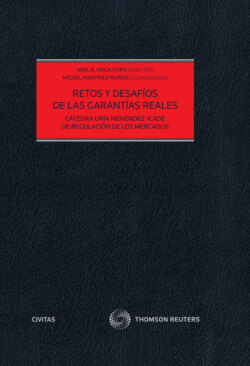Читать книгу Retos y desafíos de las garantías reales - Abel B. Veiga Copo - Страница 9
На сайте Литреса книга снята с продажи.
III. Definition of ownership
ОглавлениеThe question left hanging in the air in the previous account is whether ownership has a mystical, or quasi-religious quality so that the resistance of English law to a wholly functional definition of security is explicable. I shall give my attention primarily to personal property (goods and intangible property) in exploring this question.
In the common law world of property scholarship, there exists a division between real property and personal property. It is common to find among the ranks of real property scholars a disinclination to venture into the untidy domain of personal property, given the structural integrity and conceptual challenges of the law concerning real property. Personal property lawyers, like myself, often come to the subject by way of commercial law and see it as a subset of commercial law, thereby excusing themselves from venturing into the depths of real property law where rights are projected over time by means of the doctrine of estates. Many issues are common to both sides of the divide but there are critical differences. It will be demonstrated below that the fragile character of ownership manifests itself with particular force in the field of personal property law31. This is why I shall place my focus on personal property.
It is probably helpful to clarify vocabulary at this point. By ownership, I mean what is commonly referred to in American cases and literature as title. Ownership in sale of goods law is referred as the property in goods32, which in turn is amplified in the statutory definition as the general property, in order to distinguish it from a lesser possessory interest, namely the special property33. The word title is sometimes used in English law to signify ownership, but its most common and orthodox use is to adjudicate between competing ownership claims, as when two parties contest the ownership of property and a ruling is then made as to which of them has the superior proprietary entitlement. Disputes of this kind are more likely to involve goods than land. Transactions involving land tend to be deliberate and protracted, allowing for a thorough investigation into title for the protection of the buyer.
Ownership in the world of personal property law has a fugitive quality not present in the case of land. To make an obvious point, land is enduring; personal property, and more particularly goods, is not. The ownership of land is recorded on a public register34, except for ships, aircraft and certain intellectual property rights, this is not the case for personal property. Transfers of land are protracted and often complex, especially where the land is or is thought to be burdened by third party encumbrances. Encumbrances, such as rights of way and use and restrictive covenants, do not “travel” with personal property35 and dealings are commonly of very short duration, even instantaneous. It is often far from easy to establish a clear root of title in the case of goods36, which in any case have a brevity of existence absent in the case of land.
Consequently, in the case of goods and dealings with them, a common lawyer at least has difficulty in grasping the idea of ownership as an absolute matter. Ownership is mediated through the concept of possession and comparative entitlement to possession. In the words of Pollock and Wright: “So feeble and precarious was property without possession, or rather without possessory remedies, in the eyes of mediaeval lawyers, that Possession largely usurped not only the substance but the name of Property”37. The dialectical character of litigation, where a court is invited to determine a case in favour of one litigant or the other, is conducive to a search for which of them has the superior right (or title). This system of entitlement is firmly embedded in English law and sometimes manifests itself in a striking way.
Nothing could be a more forceful illustration of this than a case before the English Court of Appeal38 concerning a car that that was found, by the trial court, to the claimant’s knowledge to have been stolen. The police had forcibly taken possession of the car from the claimant under legislation allowing possession thus to be taken for a period while inquiries were made to identify the true owner. The period had expired but the police were unable to trace the true owner since the identifying marks on the car had been erased. Having previously been in possession of the car, albeit unlawfully, the claimant’s earlier unlawful possessory right prevailed over the police’s later unlawful possessory right. The claimant could therefore be said to have the second-best title in the world, inferior only to that of the unknown true owner. Legislation in modern times does curb a little this application of the principle of comparative entitlement, to the extent that it calls for a claimant to identify any other person who to his knowledge has or claims an interest in the goods; that person may subsequently be joined in the proceedings39. But the claimant in the stolen car case had no incentive to issue an invitation to third parties in this way.
